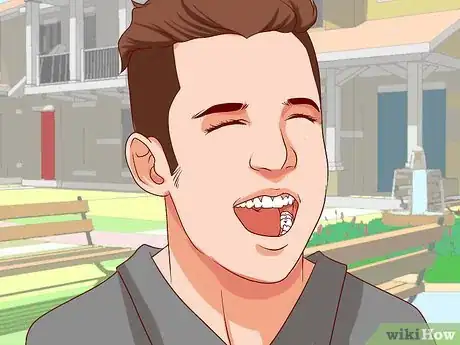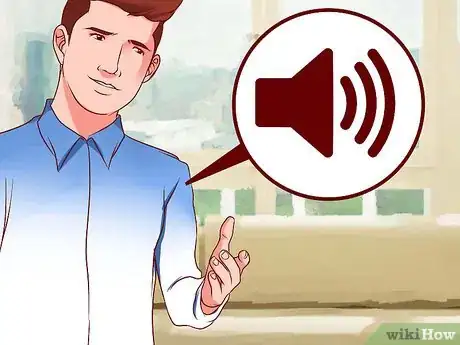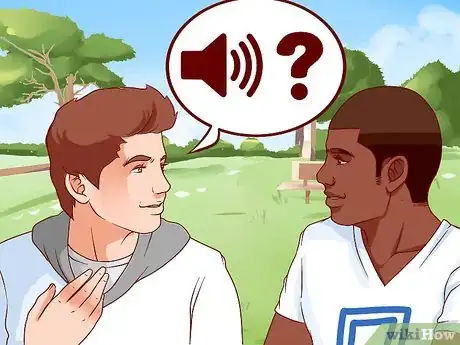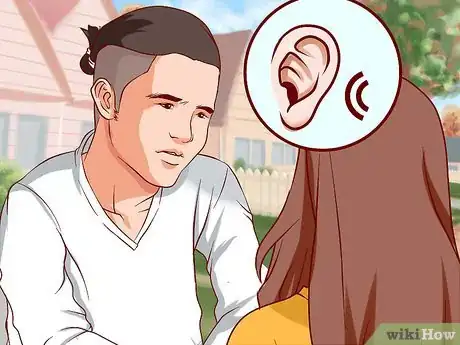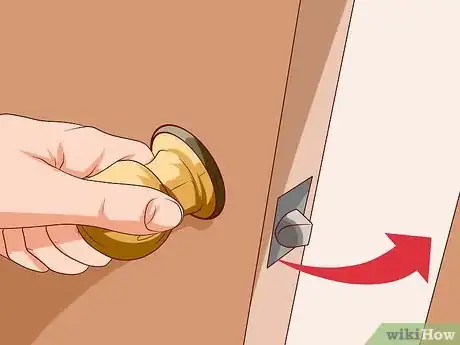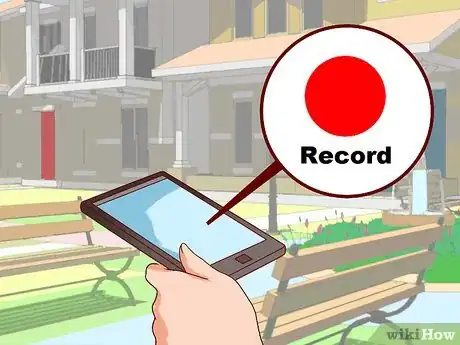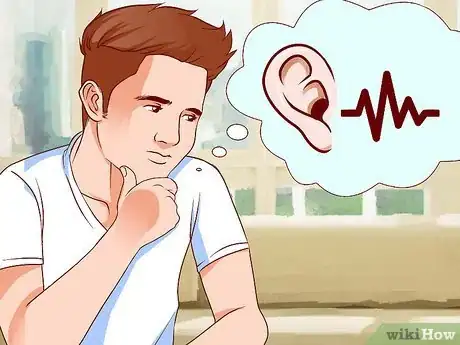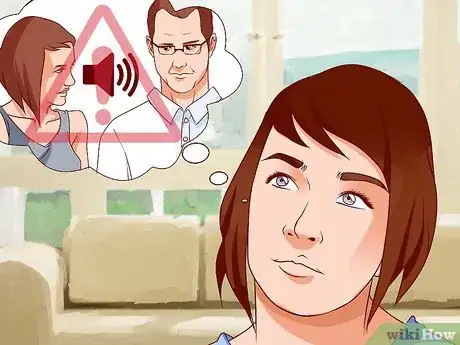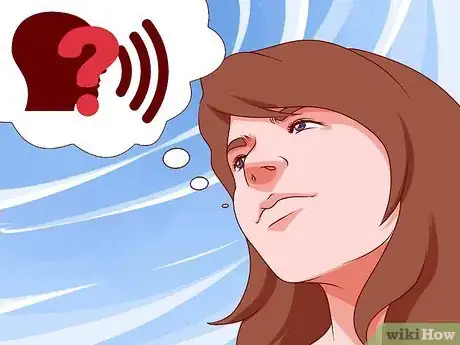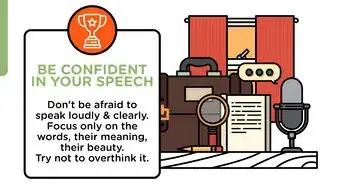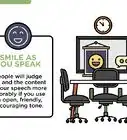This article was co-authored by Sabrina Grover, LMSW. Sabrina Grover, LMSW is a Licensed Master Social Worker (LMSW) who earned her degree in Advanced Clinical Practice from New York University. Sabrina has experience working in substance abuse recovery centers and schools where she gained experience providing evidence-based treatment to children, adolescents, adults, and families. Sabrina specializes in Dialectical, Narrative, and Cognitive Behavioral Therapies. She has particular expertise in treating clients struggling with grief, complex trauma, interpersonal difficulty, family conflict, anxiety, and depression. She commits to providing a supportive environment for everyone who commits to growth and offering a warm, non-judgmental atmosphere.
There are 10 references cited in this article, which can be found at the bottom of the page.
wikiHow marks an article as reader-approved once it receives enough positive feedback. This article received 12 testimonials and 80% of readers who voted found it helpful, earning it our reader-approved status.
This article has been viewed 418,979 times.
Do people tell you that you are loud? Does this annoy them or you? Are you insecure about the sound of your voice? Everyone wants to be heard, but raising your voice isn’t always the best approach. If you ever find yourself the object of glares in public places for being too loud, then this article is for you.
Steps
Training Your Voice
-
1Breathe from the diaphragm. Place one hand at the top of your stomach and the bottom of your rib cage. Inhale into this area and attempt to make your hand rise using your breath. This will put your breath in the right place rather than pushing speech from your nose, chest or mouth. Forcing breath from these places can be grating and loud.[1]
- Once you have the breath in your diaphragm, try vocalizing from the place where you are resting your hand.
-
2Relax your throat. Having tension in your neck can lead to trying to force the sound out of your throat. Relax your throat in order to relax your voice. Place one hand on your neck and speak normally to assess the tension in your throat. [2]
- Drop your jaw as low as you can and take in a large yawn. Release the air slowly with a gentle hum. Repeat this several times until you begin to feel your throat relaxing.
- Once your throat is relaxed, continue dropping your jaw, then exhaling with words like “hang, harm, lane and loam.”
- Massage your neck throughout this process if you feel it tightening.
Advertisement -
3Vary your volume level. This will help you be heard as well as hearing yourself. Speaking at the same volume, tends to have the effect of the listener tuning the speaker out. This could lead to frustration and tempt the speaker to be even louder. Experiment with varying your volume level. [3]
- Creating variety in your volume will allow you to be more conscious of your volume and see the effect on your listener.
- Try speaking at almost a whisper.
- Make your voice quieter until someone asks you to speak up.
- Try raising your volume only on the word you would like to emphasize. “That pizza was the BEST!”
-
4Enlist the help of someone else. It can be difficult to hear yourself. Ideally you would hire a coach to be an outside ear. They can assess your volume and your needs, then lead you through some exercises which will help you learn how to control your voice. If this is not an option for you at this time, ask a friend to give you feedback.[4]
- Voice coaches can lead you through some breathing exercises, as well as running through the range of pitch and volume with your voice.
- If you are working on your own, ask a friend if they have noticed a difference. Give them permission to point out when you raise your voice. When they do point it out, don’t get angry. Remember that they are trying to help you.
Communicating Effectively
-
1Practice listening more than you speak. Take the competition out of your conversations by being an active listener. Truly engage with what the other person is saying. Avoid interrupting. Listen to what they are saying instead of thinking about what you want to say next. This way you will not feel the need to raise your voice to be heard over theirs, but can be involved in the conversation on an even playing field.[5]
- Try to approach the conversation from a non-judgmental perspective. Make sure that the other person knows that you're there to support and listen to whatever they're talking about.
-
2Control your environment. Do your best to change the elements in your environment which may cause you to increase the volume of your voice. The more you can adjust the environment to be ideal to hearing what you are saying, the less need you will feel to speak loudly.[6]
- Get rid of exterior sounds by closing windows and doors.
- Move closer to the person or people you are talking to. The more distance between you and your audience, the more likely you will feel the need to raise your voice to fill the void.
- Speak in a small room. Large rooms eat up sound, and you may feel the need to speak up. Choose small rooms for quieter communication.
-
3Be assertive using communication skills instead of volume. Your opinions are valid and deserve to be heard. If you feel that the other person isn’t listening, practice communicating assertively without raising your voice.[7]
- Meet the other person where they are at. Try to understand where they are coming from and let them know that you get it by saying something like, “I understand you have been under a lot of stress lately,” or, “I know that you are busy right now, so I will be quick.”
- Stay positive when you are speaking negatively. Even though you disagree with a person, it doesn’t necessarily mean that you dislike the person. There is certainly no need to disrespect them.
- Say “no.” Sometimes it’s as simple as just learning to say, “no.” If there does not seem to be a solution in sight, you can end the conversation and walk away rather than escalating the argument and raising your voice.
-
4Assimilate with the group. When speaking with a group of people, there is an urge to talk over others, one-up the other people, or hijack the conversation. As people continue to make these mistakes in a group, the entire group will increase in the volume of their speech.[8]
- Wait for your opportunity to be heard rather than speaking over someone.
- Use body language to indicate that you would like to speak. Try raising a finger, nodding, or shaking your head.
- When you do have the floor, make your point quickly, before someone else jumps in.
Identifying the Problem
-
1Listen to yourself speak. There are two ways that sound reaches the inner ear, through air and bone. Usually, the sound you hear when you speak is a combination of these two pathways. Some people are more sensitive to one or the other.[9]
- Listening to a recording of yourself eliminates the bone-conducted sound as there is no vibration from the vocal chords to create this pathway. This is why your voice sounds different when you are listening to a recording of yourself.
- Try wearing earplugs to eliminate the sound conducted by air.
- Some abnormalities of the inner ear can lead to extra sensitivity of the the bone transfer of sound to the point where you can hear the automatic systems of the body like breathing and moving your eyes.
- See if eliminating one of these pathways has a significant effect on your hearing.
-
2Test your hearing. Speaking too loudly can be a sign of hearing loss. Other signs of sensorineural hearing loss are difficulty hearing when there is a lot of background noise, and understanding what people are saying with clarity. If you are experiencing these symptoms, see your physician and get your hearing checked.
-
3Assess your competition. People in positions of power are often trained to speak loudly and with authority, but it also comes naturally to some who have been assigned or consider themselves to be in a high position of power.[10]
- Where do you place yourself in rank of power?
- What effect is this having on the people around you?
- Would it benefit you to reduce your vocal intensity to better communicate on the same level?
-
4Question your motives. Some people speak loudly because they feel that they are not being heard. Another reaction to this feeling is constantly repeating yourself. If you find yourself doing these things, the cause of speaking loudly could be related to your need to have your thoughts heard.[11]
Community Q&A
-
QuestionCould my dad's loud voice have anything to do with why I'm so loud?
 Community AnswerYes. Your parents' speaking voices can definitely influence how your own speaking voice develops, so if your dad is loud, that could easily explain why your voice might be louder too.
Community AnswerYes. Your parents' speaking voices can definitely influence how your own speaking voice develops, so if your dad is loud, that could easily explain why your voice might be louder too. -
QuestionMost of my friends and family say I enjoy yelling, but when I try to stop, they say I'm too quiet. What should I do?
 Ameena AsifCommunity AnswerDont yell and speak gently. Have a conversation. Extend it. Joke around. Show you are interesting.
Ameena AsifCommunity AnswerDont yell and speak gently. Have a conversation. Extend it. Joke around. Show you are interesting. -
QuestionI'm known as the loud, annoying person in my group. What can I do to change this stereotype?
 Community AnswerDon't repeat anything and speak in a gentle manner, and not too loudly, and don't interrupt.
Community AnswerDon't repeat anything and speak in a gentle manner, and not too loudly, and don't interrupt.
References
- ↑ https://www.psychologytoday.com/blog/communication-success/201406/how-strengthen-improve-the-sound-your-speaking-voice
- ↑ https://toastmasterscdn.azureedge.net/medias/files/department-documents/education-documents/199-your-speaking-voice.pdf
- ↑ https://open.lib.umn.edu/communication/chapter/10-3-vocal-delivery/
- ↑ https://www.psychologytoday.com/blog/communication-success/201406/how-strengthen-improve-the-sound-your-speaking-voice
- ↑ https://www.bhf.org.uk/informationsupport/heart-matters-magazine/wellbeing/how-to-talk-about-health-problems/active-listening
- ↑ https://www.gsb.stanford.edu/insights/big-data-approach-public-speaking
- ↑ https://positivepsychology.com/assertive-communication/
- ↑ https://www.asme.org/topics-resources/content/public-speaking-know-your-audience
- ↑ https://psychcentral.com/blog/how-to-listen-to-yourself-especially-if-youre-really-out-of-practice
About This Article
To stop speaking so loudly, try relaxing your throat before you speak since tension in your throat can make you talk louder. To relax your throat, drop your jaw, take a big breath, and slowly release the air with a gentle hum. Also, when you're talking, try to speak and breath from your diaphragm instead of your chest, nose, or mouth, which can help make your voice softer and quieter. You can also try recording yourself speaking and practicing at different volumes to get an idea of how loud you are. For more tips, like how to communicate effectively without raising your voice, read on!

